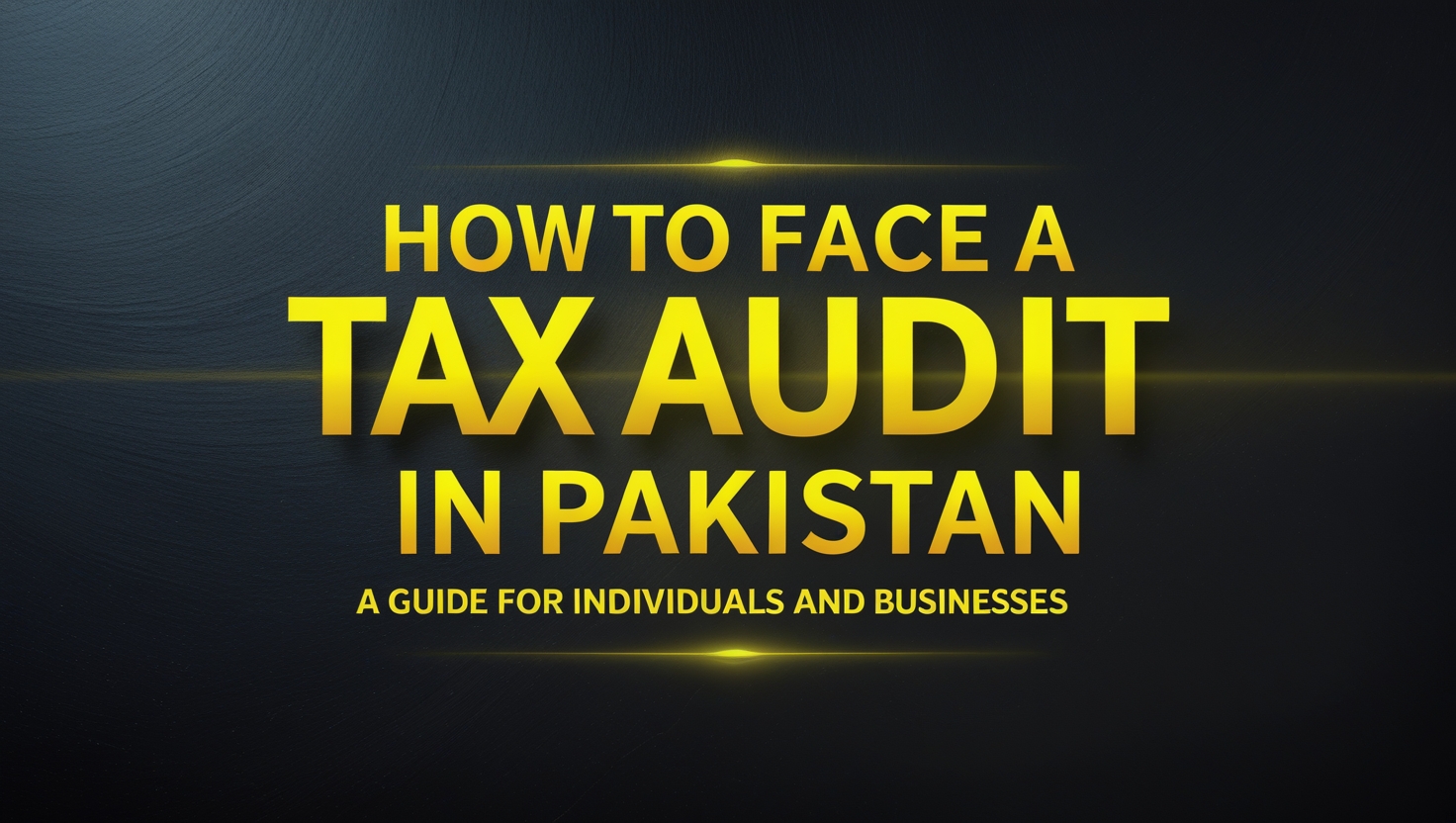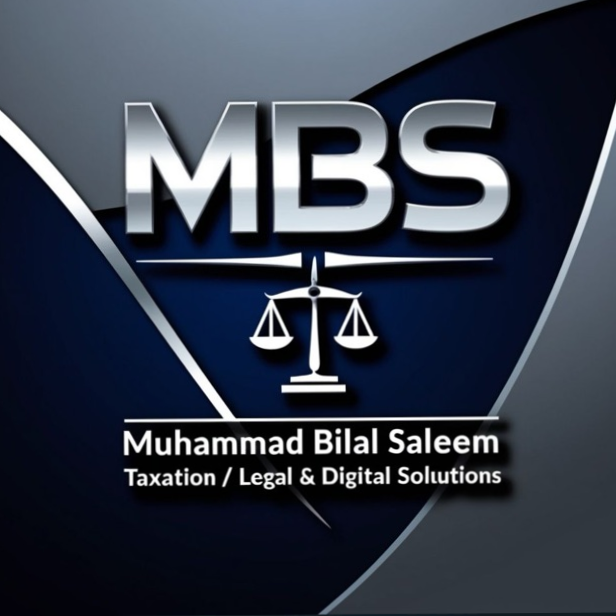
How to Face a Tax Audit in Pakistan: A Guide for Individuals and Businesses
How to Face a Tax Audit in Pakistan: A Guide for Individuals and Businesses
Tax audits can be stressful at times, but if you are prepared, the process can be easily completed. In Pakistan, the Federal Board of Revenue (FBR) audits individuals, freelancers, and businesses to ensure tax accuracy. This guide will tell you what a tax audit is, why you are selected, and what you should do.
What is a tax audit?

How to Face a Tax Audit in Pakistan: A Guide for Individuals and Businesses
A tax audit is a detailed review that the FBR conducts of your:
Income tax return
Statement of wealth
or business finances
to verify that:
How to Face a Tax Audit in Pakistan: A Guide for Individuals and Businesses
Income has been correctly disclosed.
Expenses and deductions are allowed.
Assets and liabilities are verified.
Taxes due have been paid.
A random (risk-based) audit may be based on a discrepancy or suspicious transaction.
Understanding the Purpose and Scope of Tax Audit in Pakistan
How to Face a Tax Audit in Pakistan: A Guide for Individuals and Businesses
At its core, a tax audit is a complex examination of a taxpayer’s financial and tax-related records by the FBR. This review is designed to verify the accuracy and completeness of tax returns, ensure compliance with Pakistan’s tax laws and regulations and, ultimately, that the correct amount of tax is being paid. The audit process can cover a wide range of financial documents and transactions.
The FBR’s power to conduct audits is firmly rooted in the Income Tax Ordinance 2001, particularly Section 177 and Section 214, which outline the powers and procedures governing the selection, conduct and rights of taxpayers for audits.
Why does the FBR select you for an audit?
The FBR may select you for an audit if:
How to Face a Tax Audit in Pakistan: A Guide for Individuals and Businesses
There is a sudden increase in income or assets
Expenses are excessive or unsubstantiated
Return not filed or filed late.
Foreign income or undeclared property
Discrepancies in third party data (bank, NADRA, real estate)
Not maintaining proper bookkeeping
Types of audits in Pakistan

How to Face a Tax Audit in Pakistan: A Guide for Individuals and Businesses
Desk audit
How to Face a Tax Audit in Pakistan: A Guide for Individuals and Businesses
Conducted via email,post or through phone call
FBR asks for documents or explanations.
No physical visit is required.
Field audit
How to Face a Tax Audit in Pakistan: A Guide for Individuals and Businesses
The audit team visits your office or home.
Records and systems are reviewed in more detail.
Income tax vs. Sales tax audit
How to Face a Tax Audit in Pakistan: A Guide for Individuals and Businesses
Individuals and salaried individuals generally face income tax audits.
Businesses may also face sales tax audits.
What documents may be required?
How to Face a Tax Audit in Pakistan: A Guide for Individuals and Businesses
Bank statements
Invoices and receipts
Property papers or leases
Tax deduction certificates (salary, utility bills, donations, etc.)
Wealth statements from previous years
Records of loan or asset transfers
Documents proving the basis of income or expenses
How to prepare for a tax audit?
How to Face a Tax Audit in Pakistan: A Guide for Individuals and Businesses
Keep documentary records organized
Keep hard and soft copies of all financial records for at least 6 years
Respond to notices in a timely manner.
If you receive a notice under Section 177 or 214C, respond in a timely manner.
How to Face a Tax Audit in Pakistan: A Guide for Individuals and Businesses
A penalty may apply for late or non-response.
Contact a tax consultant.
A professional can help you with documentation, legal clarification, and communication with the FBR.
Provide accurate information.
Hiding income or exaggerating expenses can be dangerous.
The FBR can obtain information from various sources.
What if you disagree with the audit report?
How to Face a Tax Audit in Pakistan: A Guide for Individuals and Businesses
You have the following options:
Submit a written objection.
Apply for amendment under Section 122.
File an appeal to the Commissioner Appeal or Appellate Tribunal.
Take the help of a chartered accountant or lawyer.
Tips to avoid audit
How to Face a Tax Audit in Pakistan: A Guide for Individuals and Businesses
File your return on time.
Do not disclose sudden and unexplained income.
Keep all receipts and evidence
Disclose foreign and crypto income.
Do not ignore FBR notices.
Rights and Responsibilities of Taxpayers During Tax Audit:
How to Face a Tax Audit in Pakistan: A Guide for Individuals and Businesses

Understanding your rights and responsibilities during a tax audit is very important to ensure a fair process and protect your interests:
Rights of Taxpayers:
How to Face a Tax Audit in Pakistan: A Guide for Individuals and Businesses
Right to know the reason for the audit: You have the right to be informed about the reasons why your case has been selected for audit.
Right to Know the Scope and Duration of the Audit: You are entitled to clarity on the specific areas and time frame that the audit will cover.
Right to Ask Questions and Seek Clarifications: Do not hesitate to ask questions to understand the audit procedures, requests or findings.
Right to Professional Assistance: You have the right to seek guidance and representation from tax professionals or legal counsel at any stage of the audit.
Right to Appeal: You have the legal right to appeal against any adverse assessment or decision made by the FBR during or after the audit process.
Right to Confidentiality: Your financial information shared during the audit is legally protected and must be kept confidential by the tax authorities.
Taxpayer Responsibilities:
How to Face a Tax Audit in Pakistan: A Guide for Individuals and Businesses
Cooperation: Cooperation with the audit process is paramount. This includes providing the required documents and information truthfully and in a timely manner.
Accurate and Complete Information: Ensure that all information and documents provided to the FBR are accurate, complete and verifiable.
Attend hearings (if required): If hearings are scheduled as part of the audit process, ensure diligent attendance and be prepared to present your case effectively.
Maintain organized records: Easily maintain complete and well-organized financial records throughout the year
Conclusion
Tax audit in Pakistan is a verification process, not a punishment. If you are organized, transparent and legally sound, the process can be completed easily. Whether you are a freelancer, an employee, or a businessman, honesty and preparation are the keys to success.
Contact Us:
How to Face a Tax Audit in Pakistan: A Guide for Individuals and Businesses
Role of the Federal Board of Revenue (FBR) in Tax Collection and Compliance
Follow us on social media for updates, tips, and tax humor:
- Facebook: MBS Taxation
- Website: MBS Taxation
- Our Website Contact Form: Click Here
- Whatsapp Number: +923087543324
We’re here to simplify your taxes so you can focus on what matters most—your work, business, and life!
FAQs
How to Face a Tax Audit in Pakistan: A Guide for Individuals and Businesses
What is a tax audit in Pakistan?
A: A tax audit is an examination of your income, expenses, and assets by the Federal Board of Revenue (FBR) to verify the accuracy of your tax return and ensure that all income has been declared properly and tax has been paid.




